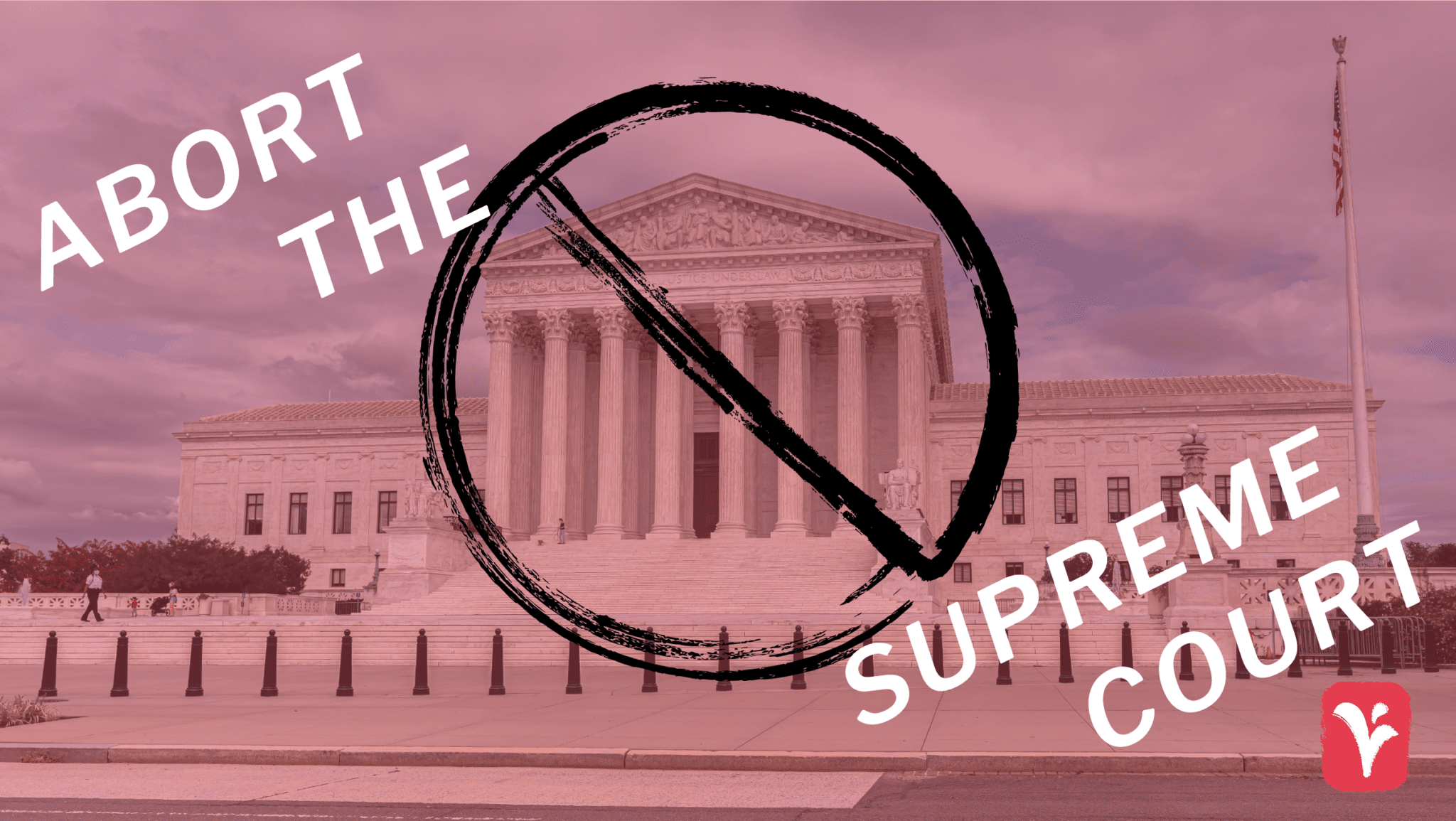On May 2, 2022, Politico published a leaked draft opinion of the Supreme Court’s decision to overturn Roe v Wade and the subsequent 1992 case Planned Parenthood v. Casey.
Roe v. Wade is the landmark case that legalized abortion for almost 50 years. If Roe is overturned, around half of U.S. states will ban or severely limit abortions. Many of these states are immediately poised to do so. However, Politico noted that any state could still “legally allow the procedure.”
The Supreme Court confirmed the draft’s authenticity but stated, “it does not represent a decision by the Court or the final position of any member on the issues in the case.”
Though the Supreme court draft signals the likely imminent fall of Roe v. Wade, abortions are still legal in the United States, and clinics are open. The draft does not indicate an official ruling. It is from February of this year—the Court’s final decision will likely be issued in late June or early July.
The 98-page draft opinion, written by Justice Samuel Alito, shows a rare breach of Supreme Court secrecy. As Politico noted, no draft decision has ever been made public during a pending case.
The majority opinion would uphold Mississippi’s 15-week abortion ban in the Dobbs v. Jackson Women’s Health Organization case, making abortions illegal after 15 weeks, about two months earlier than Roe. The decision would dismantle federal constitutional protections for abortion and instead leave individual states with the power to decide.
The decision could still change, and Roe could be preserved. Many foreshadowed threats to reproductive rights with a 6-3 conservative majority in the Court. Justices Alito, Brett Kavanaugh, Amy Coney Barrett, Clarence Thomas, and Neil Gorsuch are reportedly in favor of overturning Roe. However, court watchers suggest that Justice John Roberts is not in favor of completely overturning Roe. As Politico reports, justices sometimes change their minds as draft opinions circulate.
However, Alito is firm in his opinion on a case that was made five decades ago. He refers to abortion providers as “abortionists” and states that Roe was “egregiously wrong from the start.”
Alito declares that “the Constitution makes no reference to abortion, and no such right is implicitly protected by any constitutional provision.” The Constitution doesn’t mention women at all. It was written by 55 men in 1787—context is of utmost importance.
The opinion to overturn Roe solidifies much of what we’ve already known, Justices are showing disregard for those who need abortions, and reproductive rights across the country are in jeopardy. Moreover, according to the Guttmacher Institute, by simply accepting the case Dobbs v. Jackson Women’s Health Organization, the Court signified its willingness to dismantle the legal right to abortion.
Many are worried and rightfully that overturning Roe v. Wade will affect more than just abortion. However, Alito claims that his opinions around abortion, though they govern privacy, will not affect same-sex marriage and the right to contraception.
“To ensure that our decision is not misunderstood or mischaracterized, we emphasize that our decision concerns the constitutional right to abortion and no other right,” wrote Alito. But many news outlets and President Biden point out it would be hard to execute this claim—gay marriage may be next. It’s important to remember that when Roe was written into law, same-sex marriage was not legal. These rights could be more at risk with the fall of Roe.
How did we get here?
In Dobbs v. Jackson Women’s Health Organization, the state of Mississippi asked the Supreme Court to overturn Roe v. Wade and Planned Parenthood v. Casey. Casey asserts that states can’t impose an “undue burden” on the right to abortion before fetal viability. The decision allows states to create their abortion laws so long as they don’t make an undue burden or anything getting in the way of a woman seeking an abortion before the fetus can survive outside the womb.
If justices approve the Mississippi law, Roe will no longer be the law of the land.
What could happen if Roe were overturned?
Though abortions are still legal, it is a crisis moment for abortion access and reproductive rights.
According to The Guttmacher Institute, if Roe is overturned, 26 states are certain or likely to ban abortion, mainly in the South and Midwest. Pew Research data asserts that over half of the Black population lives in the South. Overturning Roe will have disproportionate effects on low-income people and people of color. Nearly half of the people who get abortions are below the poverty line.
Many people seeking abortions will need to cross state lines to do so and often travel great distances, causing additional barriers for those who might not have the funds to do so, take time off work, or secure childcare.
We’ve also seen states begin rolling back abortion protections. 13 states have trigger bans that would immediately ban abortion after Roe v. Wade is overturned.
How to get involved
- See if your state is holding an abortion rights action.
- Donate to abortion funds.
- Pay for someone’s abortion.
- Share resources like I Need an A, Liberate Abortion, Digital Defense Fund, and Repro Legal Helpline for those who might be looking for a provider, legal advice, or to get involved in the movement.
- Shout your support for abortion access and providers with #KeepOurClinics.
Abortion is common and normal—nearly one in four women will have an abortion by the time they are 45.
A variety of polls suggest that overturning Roe v. Wade is not a decision that most Americans support. While the impending decision about overturning a case that provided the right to legal abortions for half a century awaits, the movement to protect abortion access will only continue to grow. Until a final decision is made, abortion is your legal right. Regardless of the Supreme Court’s final decision, people can still get abortions safely through self-managed options.
Our doors are still open.
